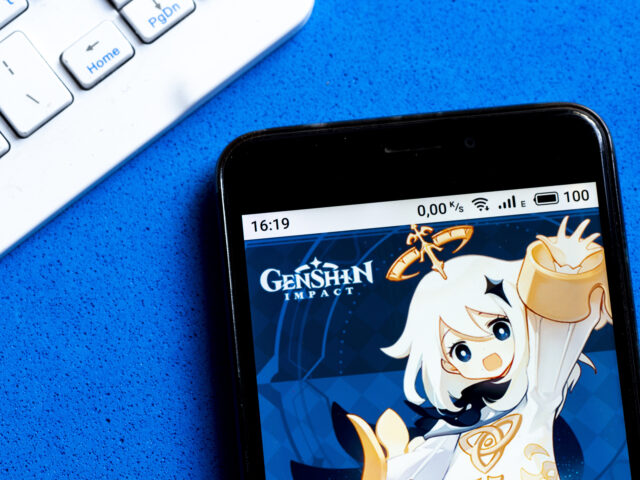The UK government has concluded that it will not regulate video game mechanics that have been linked to “problem gambling” by multiple studies, saying that it wants video game companies to self-regulate instead.
A British government investigation into “loot boxes” — a video game mechanic involving small purchases of digital caches containing random in-game goods of varying gameplay value — has concluded that the game mechanic found in a variety of titles played by children is linked to “problem gambling”.
However, despite coming to this conclusion, the investigation has said that the government should not step in to regulate these practices, but should instead allow video game companies to self-regulate the practice, a move that one expert said would effectively make it so that “foxes are the ones guarding the hen house.”
According to the consultation outcome published on Sunday, the UK government investigation found that there were over a dozen studies linking the use of loot boxes — which are employed by major game franchises such as Fifa and Call of Duty — to “problem gambling”, concluding that measures should be taken to ensure such randomised containers of video game assets cannot be purchased without parental consent, and that all players have access to spending controls and transparent information to help control their spending.
However, while the study demanded these controls be implemented, it went on to say that it should be the video game companies themselves who self-regulate the industry, and that the government should not act until it can be established that there is an outright “causal relationship” between problem gambling and “loot boxes”.
“Games developers, publishers and platforms operating in the UK must take responsibility for ensuring player safety, and work collaboratively to find tangible industry-led solutions,” Culture Secretary Nadine Dorries said in regards to the conclusion of the consultation process.
However, while the UK government appears happy with this conclusion, experts appear less so, with one expert suggesting that allowing the gaming industry to regulate loot boxes would allow bad actors to thrive.
“Prior select committee inquiries have unambiguously shown that certain bad actors within the video game industry cannot be trusted to self-regulate when it comes to player protection,” The Guardian reports Dr David Zendle, a gaming expert at the University of York, as saying.
“By making those same industry bodies the ones that are responsible for regulating loot boxes, [the Department for Digital, Culture, Media & Sport] is essentially guaranteeing that foxes are the ones guarding the hen house,” he went on to say.
“I hate making laws. I would prefer the sporting bodies to come together and I have asked for a round table with them to discuss this," said Culture and Sports Secretary Nadine Dorries — essentially passing the buck https://t.co/KkIc3YBcwJ
— Breitbart London (@BreitbartLondon) April 23, 2022
Rising in popularity in the late-2010s, controversy surrounding loot boxes really began to hit its apex during the late-2010s, with a scandal in 2017 involving the allegedly anti-consumer practices of Electronic Art’s Star Wars: Battlefront II seeing the UK government express an interest in regulating the in-game purchase option, though Sunday’s conclusion seems to indicate no action will be taken by authorities for now.
The same cannot be said for Belgium however, which opted to ban the practice in 2018 after finding that the games which allowed people to buy loot boxes with real money were “in violation of gambling legislation” within the country.
Other nations have also clamped down on loot boxes and similar mechanics, with the Netherlands now pushing for a total ban on loot boxes, while Japan has implemented controls on the practice, as well as on so-called “gacha” gameplay purchases, which — like loot boxes — often involves players using real or in-game currency to purchase a random item and/or character for use in-game.
According to data published by enthusiast publication Eurogamer, at least three of the five highest-grossing mobile games of Q1 2022 were “gacha” games, with the highest grossing game, Genshin Impact, earning over half a billion dollars within the first three months of 2022 for its Chinese owner miHoYo.

COMMENTS
Please let us know if you're having issues with commenting.